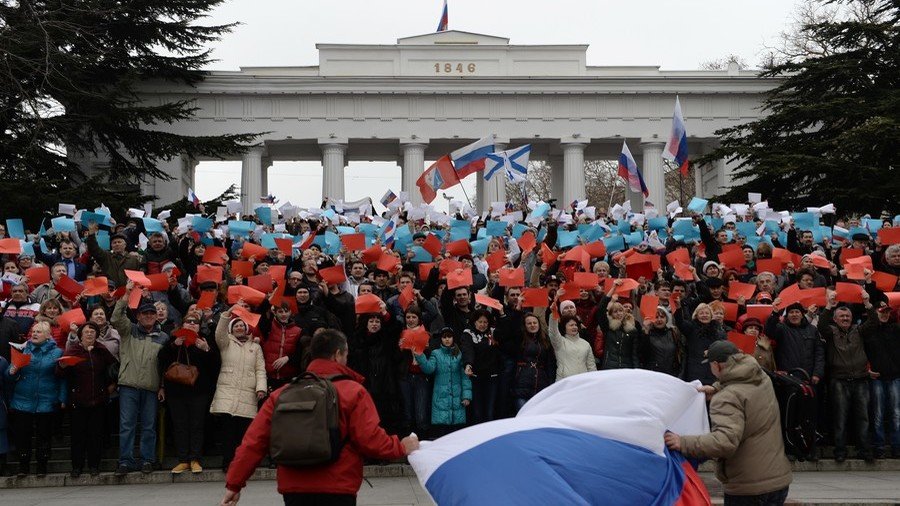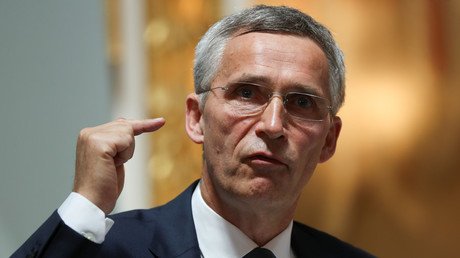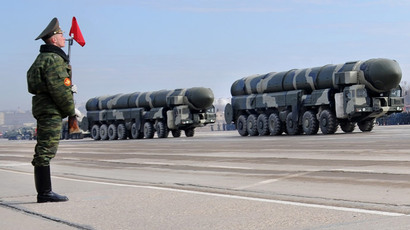Crimea not reason for NATO to isolate Russia, dialogue is key to reduce tensions – Stoltenberg

The “illegal annexation of Crimea” is not a reason for NATO to isolate Russia and stop talking, Jens Stoltenberg said, sharing his vision of the bloc’s future.
NATO Secretary-General Jens Stoltenberg is certainly not the biggest fan of the Kremlin, but speaking at the ‘NATO Engages’ conference on Wednesday in Brussels, he opted for a softer rhetoric, saying re-engagement with Moscow would bring more good than harm.
While NATO should heavily invest in military buildup, “we can engage in political dialogue with Russia, because Russia is our neighbor, Russia is not going to go away and we need to talk to Russia,” Stoltenberg said.
Slamming what he called “[Putin’s] illegal annexation of Crimea, cyber propaganda, interference in domestic political processes,” the secretary general nevertheless said: “But for me it’s not an argument in favor of isolating Russia or stop talking to Russia. Actually, I think the opposite.”
At a time when tensions between Russia and the West are running high, “it’s even more important to talk to Russia to reduce tensions.” While good relations with Moscow may not become reality in the nearest future, NATO still has “to talk to Russia to manage difficult relationships.”
“We have more military presence, more exercises, so we have to avoid miscalculations, incidents and accidents, and at least, if they happen, to prevent them from spiraling out of control,” Stoltenberg said.
Asked if Moscow is really a threat to Europe, he replied: “We don’t see any imminent threat against allies, but we see a much more assertive Russia.”
While there was nothing unusual in this remark, Stoltenberg explained his Russia policy is based “on what I learned as a Norwegian politician.” He said his experience taught him that “even in coldest periods of Cold War we were able to keep working relationship with Russia,” adding that Oslo cooperated with Moscow on border controls, environment, fisheries, and other issues. Previously, Stoltenberg stated that “Russian assertiveness” presented one of the major challenges to NATO, and urged alliance members to prepare civilian infrastructure for wartime action.
READ MORE: Trump jokes NATO chief is ‘only one’ who likes him at bloc’s summit… but he’s OK with it
Aside from Russia, he reiterated his previous statement that NATO might cease to exist one day. “It is important to convey the message that the Transatlantic bond, NATO as cornerstone of security… it’s not written in stone that we will be there forever.
“It’s not a law of nature that we’ll have NATO forever,” he added.
Crimea was reunified with Russia in 2014 following a March referendum in which an overwhelming majority voted in favor of the move. The US and its allies imposed a number of sanctions on Moscow, with the Kremlin delivering a similar answer. While the West insists the referendum was illegal, Moscow claims it was conducted with no violations of international norms.
Like this story? Share it with a friend!















